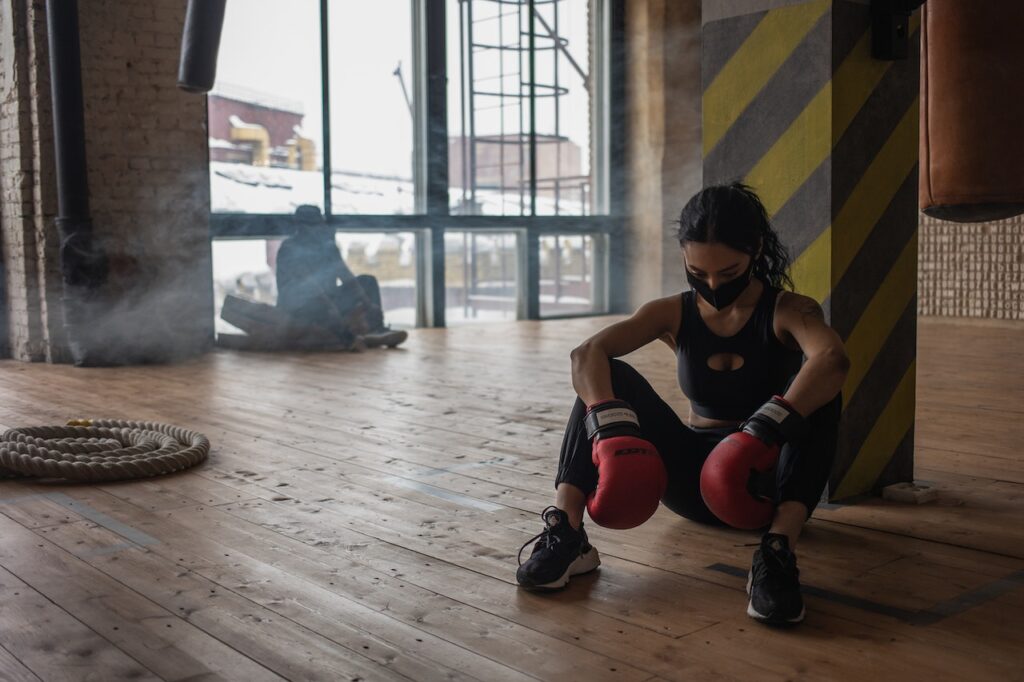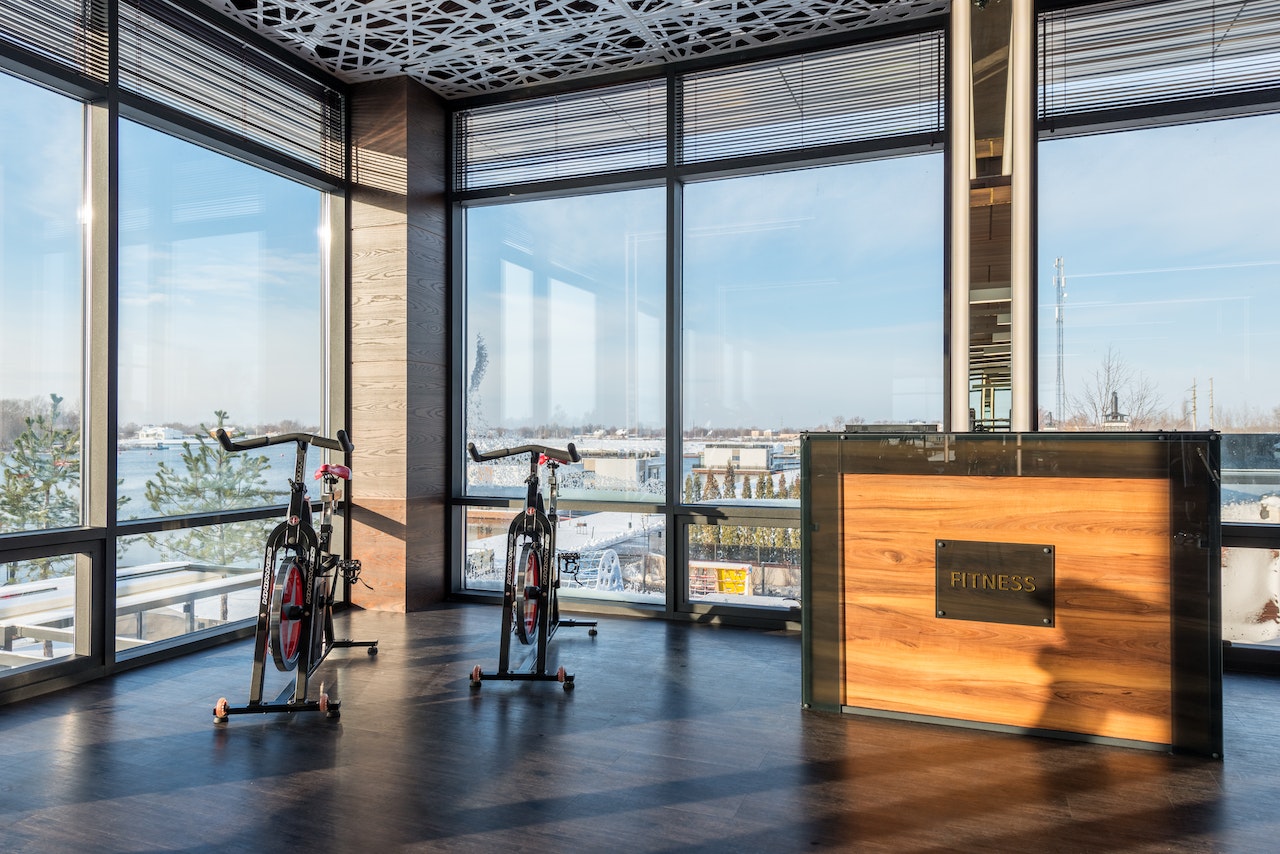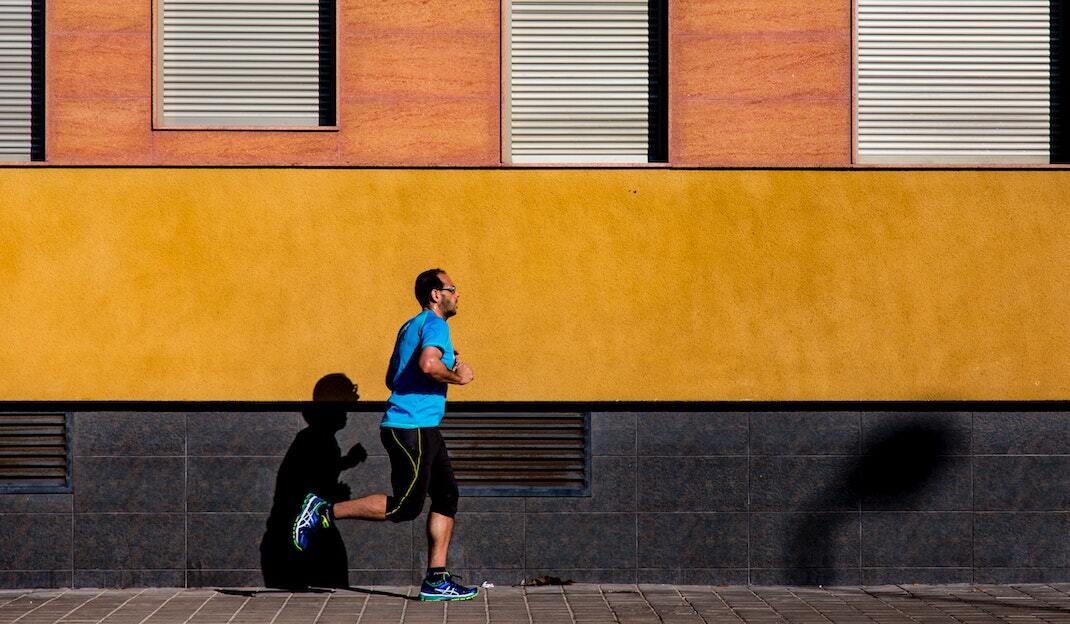Exercising is a great way to improve our mood and physical and mental health. However, we often feel exhausted instead of being in a good mood and full of energy after a workout. Most people completely ignore fatigue after training, especially if they want to achieve results quickly, which can be a big mistake. It is possible that, in this way, our body is sending us a signal that we are not doing something right.
In this text, you can read about the most common causes of fatigue and exhaustion after exercise and how to prevent them easily.
Seven most common causes of exhaustion after a workout:
- Lack of sleep
- Dehydration
- Poor nutrition
- Overreaching and overtraining
- Improper breathing during exercise
- Skipping the post-workout cooldown
- Health condition
LACK OF SLEEP
Quality sleep is crucial for our physical and mental health. Most adults need 7.5 to 8.5 hours of uninterrupted sleep, and sleep gives you the energy to deal with daily tasks.
Regular exercise is believed to improve sleep and reduce the risk of daytime sleepiness and sleep disorders. However, one should be careful here because exhausting and long-lasting exercises can sometimes have the opposite effect and even disrupt sleep. Moderate and regular physical activity is best for healthy sleep.
If you didn’t sleep enough the night before, you would most likely feel tired already during training. Exercising uses energy, which we don’t already have enough due to lack of sleep, so there is no doubt that we will feel exhausted after training. The only way to fix this is to take a nap after exercise. Here you can read more about power naps and why resting after a workout is good.
DEHYDRATION

Research shows that dehydration is the leading cause of fatigue in most sports. Therefore, if you are exhausted after a workout, ask yourself if your body is hydrated.
Water intake depends on climatic conditions, body weight, health, and activity. Experts recommend a daily fluid intake of 3.7 liters for men and 2.7 liters for women. With more significant physical activity and higher air temperatures, it is necessary to take in additional water.
Try to drink water as often as possible, even when you are not thirsty. The truth is when you feel thirsty, you are already slightly dehydrated. Water has no taste, so it is difficult for most people to drink enough. We advise adding lemon to the water; the flavor will improve, and you will unconsciously drink more water.
You must have a water bottle during the workout and drink some fluids every 15 minutes. It can be noticed that more and more people in gyms are drinking Chia Fresca. Check out our simple recipe if you haven’t tried this refreshing drink.
POOR NUTRITION
Anyone who trains regularly knows how much influence nutrition has on our physical performance. Often, in the desire to lose weight as soon as possible, we eat too little food, which is why we do not have enough energy to finish the training. On the other hand, if we eat a lot right before exercise, we can feel tired and nauseous. That’s why we should be careful what and when we eat if we plan to exercise.
A meal before exercise should give you energy and prepare your body for the efforts it will be exposed to. It would be best to eat 2 hours before a workout. We researched what is best to eat before exercise, and you can read about it here.
What we eat after training is also very important. Eating foods rich in protein promotes muscle growth and recovery after exercise. Eggs, chicken, turkey, or fish are excellent food choices for a post-workout meal.
There is a saying that we are what we eat. Whether or not we exercise, eating regularly and choosing foods that provide enough energy are essential. Avoid sweets, artificial juices, and fast, fried, and processed foods. Such meals affect glucose and insulin levels, causing us to feel tired.
Always choose healthy foods that will help you restore the energy you spend during training instead of meals that make you feel even more exhausted.
OVERREACHING AND OVERTRAINING

It is probably overreaching if you feel muscle pain after several consecutive days of hard training. This leads to fatigue and reduced performance, which last up to several days. Most people who exercise regularly have experienced overreaching and find that there is a performance improvement after a short period of fatigue. We can often hear that exhausting training makes exercisers stronger. However, a limit must be set.
The most important thing is to create a balance between training and resting. Determining at least one day a week for the body’s recovery after exercise is necessary because otherwise, it can lead to overtraining syndrome. Overtraining occurs when excessive exercise is not adequately matched with recovery. The main symptoms are:
- Excessive fatigue,
- Muscle pain,
- Disturbed sleep,
- Hunger and thirst disruption,
- Reduced motivation and poor concentration
Research shows that prolonged periods of intense exercise affect the immune system. Frequent illnesses are also characteristic of overtraining.
Recovery from overtraining can take months, and this means strict rest and interruption of training for a long time. To avoid this, it is best to rest every week. You should also alternate days when you do heavy exercise and days with lower-intensity training.
IMPROPER BREATHING DURING EXERCISE
People often focus on the correct execution of specific exercises while completely neglecting proper breathing. It is crucial to pay attention to how we breathe during training.
Improper breathing speeds up the heart rate and is responsible for excessive energy consumption, which leads to a feeling of exhaustion. We unconsciously hold our breath, especially when performing strenuous exercises, which is a huge mistake. Breathing should be deep to supply the body with oxygen so that we can exercise longer without getting tired.
Always try to inhale through your nose and exhale through your mouth. This is one of the basic rules when performing most exercises. However, we must note that different breathing techniques are used in various sports. If you are not sure if you are doing it correctly, be sure to seek the advice of a trainer on how to breathe properly.
SKIPPING THE POST-WORKOUT COOLDOWN

Cooling down is a significant part of your training to prevent the feeling of exhaustion. Studies show that stretching before and after physical activity helps prevent injuries and improve performance. Cooling down is necessary to return heart rate and breathing to normal and to avoid soreness in muscles strained after exercise.
Nausea and dizziness can occur after suddenly stopping strenuous exercise. That’s why it’s vital to cool down after training. For example, if you’re jogging, gradually decrease your pace for the last 10 minutes until you reach a leisurely walk. It is common for cool-down exercises to be performed after strength training at a light intensity for 5 to 15 minutes.
Never forget to cool down after training to relax tense muscles, speed up recovery, and reduce the feeling of fatigue.
HEALTH CONDITION
It is known that moderate exercise is good for our health because it strengthens our immune system and thus protects us from various diseases.
However, many diseases are accompanied by a feeling of fatigue and exhaustion, especially after increased physical activity. Exercising in some cases can even worsen the existing health condition. If you have health problems, consult your doctor about which physical activity is most suitable for you.
Pay special attention if you have been exercising regularly for a long time and suddenly feel exhausted after a workout. It would be best to have a medical examination as it could be a health problem.
_____
Never ignore post-workout exhaustion. That is the best sign that we are not doing something right. Get enough sleep, balance your diet, have at least one day a week for rest, and most importantly, don’t forget to always have a bottle of natural still water with you.
This post may contain affiliate links. You can read the affiliate disclosure here.






